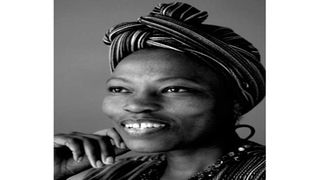
Dr Karambu Ringera.
| File | Nation Media GroupPain of 17 years without my son birthed an orphanage
What you need to know:
- Dr Karambu takes care of more than 100 orphans and vulnerable children.
- She says women and children are the most hit when there is violence, poverty and disease.
When Dr Karambu Ringera fell out with the father of her son, she went through a traumatic experience that inspired her current work with orphans and survivors of violence.
Dr Karambu, a communication expert, is the founder of International Peace Initiatives (IPI) that runs Kithoka Amani Children’s Home and Tiriji Foundation that have become a haven for HIV/Aids orphans and victims of domestic and sexual violence.
“I was not ready to be married to him and we agreed to share care time for our son. But when he took the boy for the first time, they hid him from me and refused to tell me where he was. I found my son after two years of searching. I managed to see him through a court order but they hid him again for 17 years. I got him back after the father passed on. I think this experience inspired me into the work I do,” Dr Karambu recounts.
Today, Dr Karambu takes care of more than 100 orphans and vulnerable children having started out in 2002 with those orphaned and abandoned due to HIV/Aids.
She says women and children are the most hit when there is violence, poverty and disease which advised the formation of International Peace Initiatives.
“Out of my experience, I discovered that women suffer most because we live under a patriarchal system. I decided to work with disadvantaged women and children to overcome the systems that were largely made by men to favour men,” she explains.
Dr Karambu says when HIV/Aids was at its peak in early 2000, women whose husbands succumbed to the disease faced psychological and physical violence with their children being abused.
However, she says currently, most of those who seek shelter from IPI are victims of sexual and gender violence.
“Our approach at IPI is transforming the victims through training and mentorship into self-reliant individuals. We work with victims to identify the solution to their problems because such an approach is more sustainable,” she says.
Abandoned
In 2002, while a student in the US, Dr Karambu started working with a group of HIV positive women who made jewellery for sale.
“Most of these women had been neglected and abandoned by relatives due to stigma. Some of them were opting to commit suicide. I could fund-raise to support their jewellery, enabling them to eat well and educate their children. Out of the 95 women we started with, only three have passed on,” Dr Karambu says.
She says Kithoka Amani Children’s Home, provides a safe place for victims of violence besides helping them start life afresh to be self-reliant.
The home, she says, provides vocational skills including agriculture, catering, hairdressing, tailoring, soap making among others besides offering scholarships through university.
“Despite their past experiences, we train the children to believe in themselves and become leaders in their community. Indeed, during the Covid-19 pandemic, the children have been running the home by themselves. They have learnt how to solve their issues such that I concentrate on fundraising,” the IPI president said.
Dr Karambu expressed concern that sexual abuse of young girls and boys has become a pandemic like HIV/Aids in the early 2000 when she started out.
“The biggest concern now is the high number of teenage girls who are pregnant. We need concerted effort to address this new disease in the community and make our society safe for the children,” Dr Karambu says.





